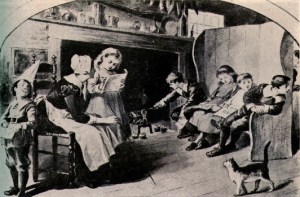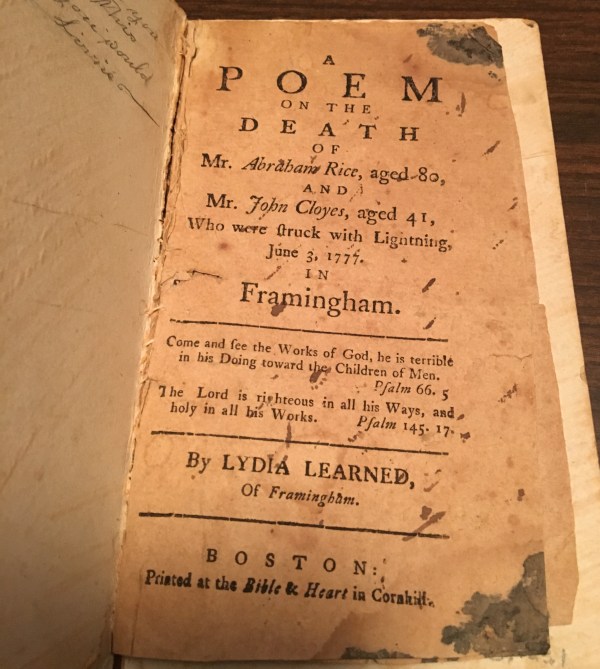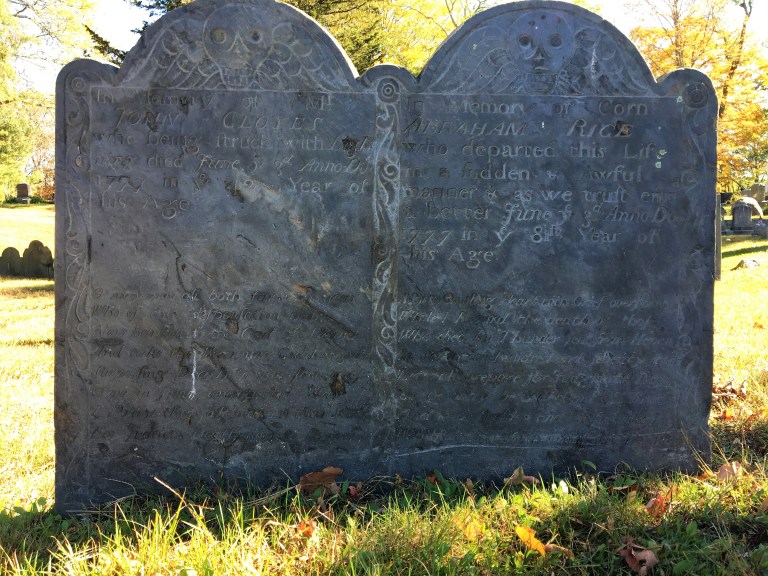In the 1700s, Framingham, like most places, was a man’s world. Women couldn’t vote or hold public office, and it would be this way for two more centuries. Advanced education for women during this time was not considered important, and some even felt that allowing women to pursue academics was dangerous. However, Lydia Learned (1730 – 1792) did not let this stop her from learning all she could and leaving a lasting impact on Framingham. She was the second of eleven children to Moses and Lydia Bryant Learned. They lived on a farm on the south end of Learned Pond, which had been named after their grandfather.

Before there were schoolhouses, little children in New England learned their alphabet and numbers from a neighborhood lady, who earned some money by teaching them in her home. Lydia probably went to such a “dame school,” but she wanted to know more than the basics. Boys could go on to study at grammar schools and later prepare for university, but girls were expected to stay at home and learn housekeeping and sewing.
Lydia learned much more. She read a great deal and taught herself to write poetry and essays on serious topics like the ten commandments. She never married but worked as a schoolteacher. In Reverend Josiah Temple’s History of Framingham 1640-1880, he described her as “a voluminous writer in prose and verse, much of which was printed.” It was surprising that her work was published. There were few printing presses in colonial America and none in Framingham. Anything that was printed was by male politicians or ministers. Perhaps that is why some of Lydia Learned’s work was printed anonymously.

Lydia wrote religious treatises (similar to an essay) and wonderful poems. In 1777 when the community was shocked by the sudden death of two of its citizens by a bolt of lightning, she wrote a mourning poem that was printed and widely circulated. The families of the victims were so moved that parts of it were inscribed on the headstones of the deceased and can still be read in the Old Burying Ground. The stanza is as follows:
My trembling heart with grief o’erflows,
While I record the death of those,
Who d’yed from thunder sent from heav’n
In sev’nteen hundred seventy-seven
According to Stephen Herring, former Town Historian, Lydia Learned sowed the first seeds of a Framingham tradition that values education. A tradition carried on by the Framingham Academy founded in 1792, which admitted “children of both sexes…upon equal terms,” as well as by the State Normal School (today’s Framingham State University) and the model school system of the current century.

Bibliography
Herring, Stephen W., An American Town, The Framingham Historical Society, 2000.
Herring, Stephen W., “Top Ten Remarkable Women From Framingham’s History,” Town Historian, Framingham Historical Society.
Temple, J. H., History of Framingham 1640-1880, The Town of Framingham, 1887.